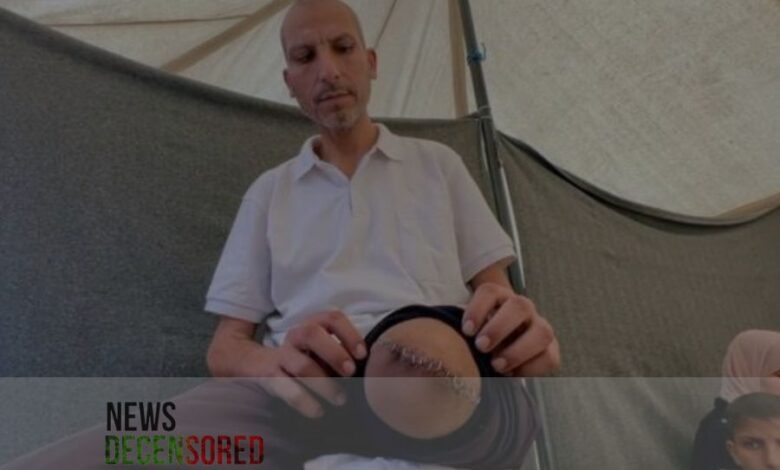Gazans Tortured in Israeli Military Hospitals, Detainees are ’Shackled and Blindfolded’, Health Workers

Hospitals in Israel have notified the media that Palestinian detainees in Gaza often receive extreme torture and suffering. These detainees are sometimes in shackles attached to their beds, blindfolded and naked and have diapers on them. Medical personnel who were quoted as saying this is outright torture.
An x-ray technician revealed to the court that in one of the military hospitals’ procedures are ‘regularly’ done without pain relievers, and the inmates ‘endure an unacceptable amount of pain. ’A former nurse also exposed how painkillers are applied sparingly when conducting invasive procedures on Shabab in public hospitals, especially in Gaza. Patients in critical stages are not provided adequate care as public hospitals often refuse to admit them.
Another detainee who was relocated to the west bank for questioning and later released stated that he had suffered the loss of a leg after he refused to receive treatment for an infected wound.
Another senior doctor at the military hospital at the centre of the allegations denied that the amputations were direct results of conditions at the hospital but did admit that the use of shackles and other methods to restrain patients was equivalent to a form of dehumanisation. Saying that detainees are being treated correctly and with great care by the Israeli army claims.
Given the issue’s sensitivity, they are anonymous, but their statements matched a February 10 report filed by Physicians for Human Rights in Israel. The report noted that Israeli civilian and military prisons had turned prisons into an instrument of revenge against numerous human rights, especially the right to health.
There have been allegations about the inhumane treatment of prisoners at a medical facility located in the Sde Teiman military base in southern Israel. Israel’s Health Ministry set up this health facility to provide treatment for limiter detainees coming from Gaza despite some public hospitals refusing to treat fighters captured during the Hamas attacks.
During hospitalisation at the Sde Teiman, patients are kept blindfolded and restrained by having their limps affixed on all sides of the beds. They are also required to wear diapers. The army claims that each case of using handcuffs is reviewed, and in cases where it is not necessary to use them, the soldiers are not restrained. However, some witnesses, including senior anesthesiologist Yoel Donchin, insist that it is a standard procedure used every time.
Testimonies further stated that detainees were predominantly kept in shedding covered with the blanket and that the prolonged cuffing would be deemed as torture. A video of Gazan detainees after the interrogation depicted injuries in the form of scars on their wrists and legs.
There is also a report in Haaretz newspaper that the reason for leg amputation is due to cuff injuries, with a Doctor quoted as saying: “It is unfortunately a routine event. ” Dr. Donchin mentioned that besides amputations, other factors were also such as infections, diabetes and blood vessel issues.
The guidelines for medical practice in Israel also dictate that no patient should be restrained unless there is a need for their security and that the restraint should be applied in the least amount possible. Mr Walfisch, who heads the Medical Ethics Board in Israel, stated, among other issues, that the safety of staff is also important and that all patients should be treated in ways that do not involve cuffing.
Whistleblowers informed the detainees that some medical staff have refused to administer necessary pain relief medications in both military and civilian medical centres; one account recounted the case of a senior citizen tortured with prolonged pelvic injection with no painkillers requested.
Sufian Abu Salah, a 43-year-old taxi driver in Khan Younis, described his plight of being brutally beaten and neglected and his leg eventually being amputated. He has referred to his detention period as” mental and physical torture”.
Dr. Donchin’s remarks indicated his desire for the closure of the field hospital. The sum of these sentiments represented the frustration of the medical community concerning the treatment of detainees:” When the hospital closes its doors, and what we will toast to. ”




